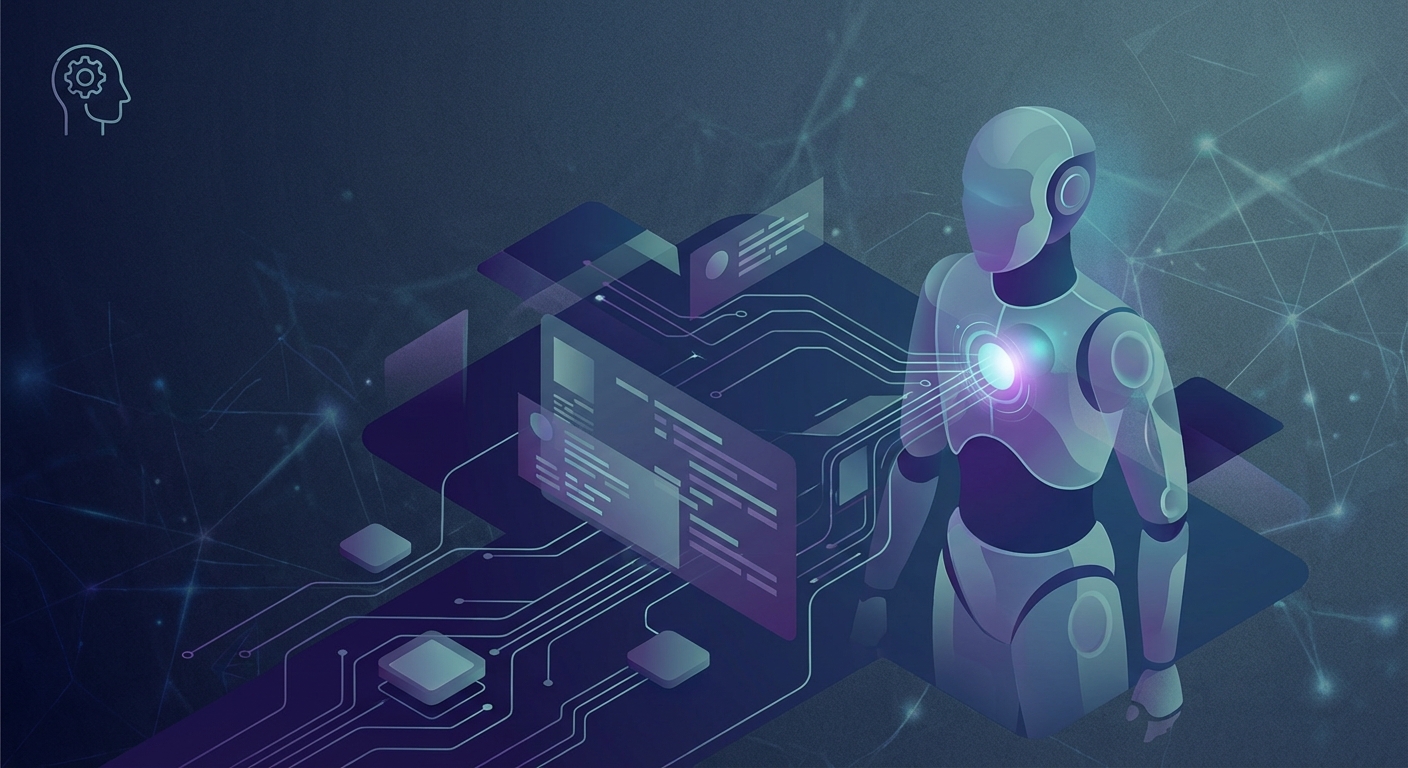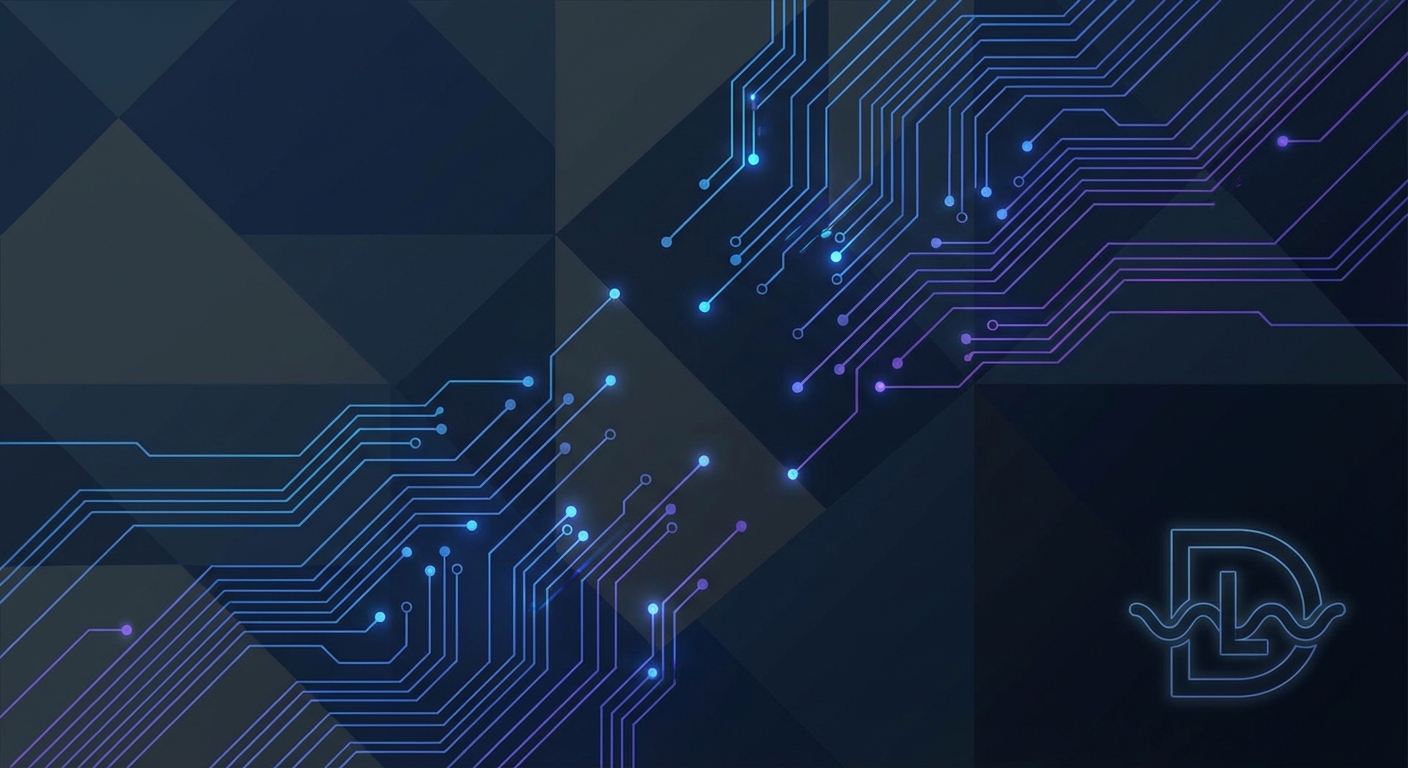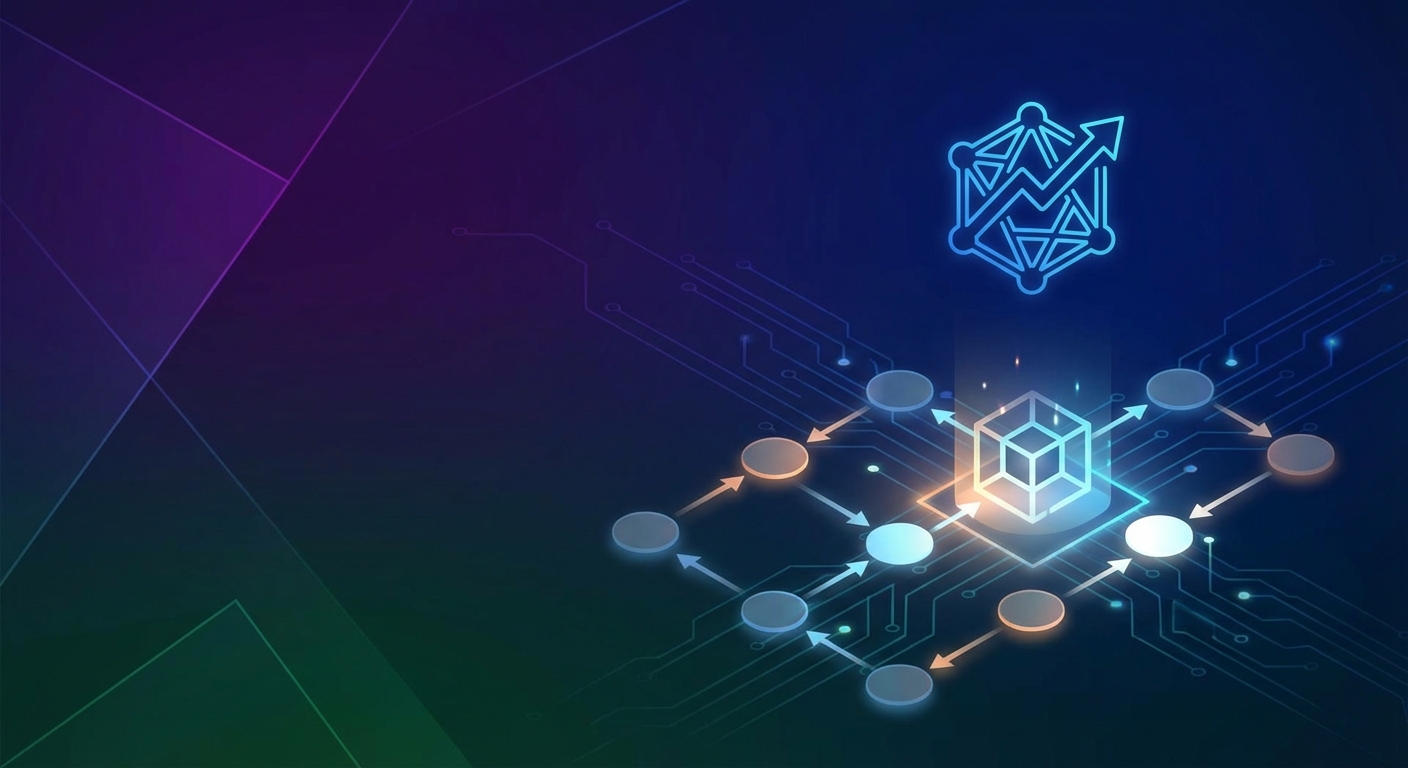The Emergence of AI Software Engineering
TL;DR
- This article covers the rising trend of AI software engineering and its impact on enterprise AI solutions. It includes how AI is reshaping software development lifecycles, enhancing automation, and improving security. Key areas discussed are AI agent development, deployment, governance, and the integration of machine learning to drive business growth and innovation.
Introduction: What is AI Software Engineering?
Okay, so, ai software engineering, huh? Sounds kinda futuristic, right? But honestly, it's really just the next step in how we build software. Think about it: we're already using ai to do tons of stuff, so why not use it to, like, build more ai stuff? It's all getting a little meta, if you ask me.
Basically, ai software engineering is where traditional software engineering meets artificial intelligence. It's all about using ai to make the software development process faster, better, and, well, smarter. Here's a few key things to keep in mind:
- It's about developing, deploying, and maintaining ai-powered applications. Like, think apps that can learn and adapt over time – not just run the same old code. For example, in healthcare, this could mean ai agents that can diagnose diseases with more accuracy for better and faster patient outcomes.
- Automation is key. We're talking about using ai to automate a lot of the tedious tasks that software engineers usually have to do. This could mean stuff like automatically generating code, testing software, and even debugging.
- It's not just about ai for ai's sake. The goal is to build intelligent systems that can actually solve real-world problems. For instance, ai could be used to optimize supply chains, personalize customer experiences in retail, or even detect fraud in financial transactions.
And with all the buzz around digital transformation, it feels like more and more businesses will need this kind of approach. It's not just a "nice to have" anymore; it's becoming a "need to have" if you want to stay competitive.
So, why should businesses care? Well, for starters, it can lead to faster development cycles and improve software quality. Plus, it can enhance security and governance, and drive innovation. These benefits are pretty significant, impacting everything from how quickly you can get products to market to how resilient your systems are against threats.
Key Components of AI Software Engineering
Okay, so you're probably wondering how this whole "ai software engineering" thing actually works, right? It's more than just slapping some machine learning models onto existing code. It's about building intelligent, autonomous agents that can handle a bunch of tasks, and there's a few key things you gotta nail.
First up: AI agent development. This is where you actually build the intelligent agents themselves. Think of it like teaching a virtual assistant how to do its job, but instead of just following instructions, it can learn and adapt. For example, you could build an ai agent that helps doctors diagnose diseases more accurately. You'll need tools and frameworks like TensorFlow or PyTorch to get started. TensorFlow and PyTorch are powerful libraries that provide the building blocks for creating complex neural networks and machine learning models. They offer pre-built functions for tasks like data manipulation, model training, and evaluation, allowing developers to focus on the specific logic of their AI agent.
Next, is AI agent deployment. Building the agent is one thing, but getting it out there and working is another. This means figuring out where the agent will live, how it'll access data, and how it'll interact with other systems. For example, you might deploy an ai agent to a cloud server to manage customer support requests. This is where you need a solid deployment strategy, including things like containerization and orchestration.
And finally, Orchestration and Integration. ai agents don't work in a vacuum. They need to play well with others, and that's where orchestration comes in. It's all about managing the workflows between different agents and integrating them with existing systems. Like, imagine an ai agent that handles fraud detection needing to talk to a database of customer transactions. Think of APIs and middleware as the glue that holds it all together.
So yeah, that's the basic overview. Now we'll dig deeper into keeping these ai agents secure and making sure they're not, like, going rogue.
AI Automation in Software Development
AI isn't just changing what software does; it's changing how we make it. Isn't that kinda wild?
AI-powered code generation is becoming a real thing, and it's not just for simple stuff. Imagine ai that can actually write significant chunks of your application, freeing up developers to focus on, like, the really creative problem solving. For example, ai could generate boilerplate code for apis, saving developers hours of tedious work; and it's getting better all the time.
Automated testing and debugging are getting a serious upgrade. It's not just about running the same old tests; ai can learn from past bugs and proactively identify potential issues. Think of ai agents that can automatically generate test cases, identify edge cases, and even suggest fixes. This is especially useful in finance, where catching errors early can save a ton of money.
Intelligent project management can seriously streamline the whole development process. AI can analyze project data, predict potential delays, and optimize resource allocation. For instance, an ai could monitor code commits, identify bottlenecks, and suggest ways to improve team collaboration. It's like having a super-efficient project manager that never sleeps.
MLOps is all about streamlining machine learning pipelines. It's not enough to just build a great model; you need to be able to deploy it, monitor it, and retrain it continuously. ai can automate a lot of these tasks, making it easier to keep your ml models up-to-date and performing well. This includes automating model retraining when new data becomes available, setting up monitoring to detect performance degradation, and streamlining the deployment of updated models into production environments.
AI DevOps is taking automation to the next level by automating infrastructure and deployment tasks. This can include things like automatically provisioning servers, configuring networks, and deploying applications.
Continuous integration and continuous delivery (ci/cd) with ai means that you can automatically build, test, and deploy code changes whenever they're made. This can significantly speed up the development process and improve software quality. It's about using ai to create a feedback loop that continuously improves the software development process.
So, what's next? Well, we'll take a look at AI agent security and governance.
AI Agent Platforms and Frameworks
So, you wanna build ai agents? Cool, but you're gonna need the right tools. Think of ai agent platforms and frameworks like the foundation and scaffolding for your intelligent creations.
First off, there's platforms like Microsoft Azure ai that offer a suite of services for building, deploying, and managing ai agents. They handle a lot of the infrastructure stuff, so you can focus on, you know, the actual intelligence part. These platforms often include pre-built models and tools for things like natural language processing and computer vision, so you don't have to start from scratch.
- Pros of Platforms: Faster time to market, less infrastructure management, often easier for beginners.
- Cons of Platforms: Less flexibility, can be more expensive in the long run, vendor lock-in.
Then you have frameworks like TensorFlow and PyTorch, which are more like toolkits for building ai models. They give you a lot of flexibility, but they also require more hands-on work. It's kinda like choosing between buying a pre-built house or building one yourself with raw materials.
- Pros of Frameworks: High flexibility, greater control over the development process, can be more cost-effective for complex or custom solutions.
- Cons of Frameworks: Steeper learning curve, requires more expertise in ai and software development, more time-consuming to set up.
Don't forget about the tools for testing and deployment. You'll need stuff to make sure your ai agents are actually working as intended and that they can handle the load when you unleash them on the world. Think of tools for monitoring performance, debugging issues, and scaling resources as needed.
Picking the right platform or framework really depends on what you're trying to do and what kind of resources you have.
- For example, if you're a small startup with limited ai expertise, you might want to go with a platform that offers a lot of pre-built functionality.
- But if you're a larger organization with a dedicated ai team, you might prefer the flexibility of a framework like TensorFlow.
Whatever you choose, just remember that building ai agents is an iterative process. You'll need to experiment, test, and refine your models over time.
So, now that we've got the tools sorted, let's talk about keeping these ai agents secure.
Ensuring AI Agent Security and Governance
Okay, so you've built these amazing ai agents – but how do you stop them from, you know, going haywire? Turns out, it's not just about cool tech; it's also about serious security and governance.
Think of ai security frameworks as the digital fences and locks for your intelligent agents. You need to make sure only authorized personnel can access and control these agents.
- Implementing robust security measures means using things like encryption, access controls, and regular audits. For example, in healthcare, you'd want to ensure that only doctors and nurses can access an ai agent that diagnoses patients, right? It's all about protecting sensitive data and preventing unauthorized access.
- Vulnerability management and threat detection are crucial. It's like having a security system that constantly scans for intruders and alerts you to potential problems. This involves regularly testing your ai agents for weaknesses and monitoring for suspicious activity.
- Incident response and security operations are your plan for when things do go wrong. What happens if an ai agent is compromised? Who do you call? Having a well-defined incident response plan can minimize the damage and get you back on track quickly.
Governance is about setting the rules of the road for your ai agents. It's all about making sure they're behaving ethically and responsibly.
- Establishing ai governance policies means creating clear guidelines for how ai agents are developed, deployed, and used. This includes things like data privacy, algorithmic bias, and transparency.
- Ensuring compliance with regulations like gdpr and ccpa is a must. These laws set strict rules for how personal data is collected, used, and protected.
- Ethical ai and responsible ai practices are all about building ai agents that are fair, transparent, and accountable. This means considering the potential impact of your ai agents on society and taking steps to mitigate any negative consequences.
Honestly, without proper security and governance, your ai agents could become a liability instead of an asset. It's like giving a toddler a loaded weapon; you just don't do it. This analogy highlights the extreme danger of unchecked AI, emphasizing that without proper safeguards, AI systems can cause significant harm, much like an untrained individual with a dangerous tool.
So, what's next? Well, we'll take a look at how to integrate these ai agents into your existing systems.
Integrating AI Agents into Existing Systems
So you've got your secure and governed AI agents ready to go. Now, how do you actually make them play nice with the systems you already have humming along? This is where the rubber meets the road, and it's not always as simple as just plugging them in.
Understanding Your Current Infrastructure: Before you even think about integration, you gotta know what you're working with. What databases are you using? What are your current application architectures? What are the existing APIs? Knowing this helps you figure out the best way to connect your new AI agents without causing a system-wide meltdown.
API-Driven Integration: Most modern systems have APIs (Application Programming Interfaces). These are like standardized communication channels. Your AI agents will likely need to interact with your existing systems through these APIs. This means designing your agents to either consume existing APIs or expose their own APIs for other systems to use. Think of it as teaching your AI agent how to speak the same language as your current software.
Data Pipelines and Synchronization: AI agents often need access to real-time or near real-time data. You'll need to establish robust data pipelines to feed this data to your agents and, conversely, to get the insights or actions generated by the agents back into your core systems. This might involve setting up message queues, ETL (Extract, Transform, Load) processes, or using specialized data synchronization tools.
Middleware and Orchestration Tools: Sometimes, direct integration isn't feasible or efficient. This is where middleware or orchestration tools come in. They act as intermediaries, managing the flow of information and tasks between your AI agents and legacy systems. They can handle complex workflows, data transformations, and error handling, making the integration process much smoother.
Testing and Iteration: Just like building the agents themselves, integration is an iterative process. You'll need to thoroughly test the connections, data flows, and overall functionality to ensure everything is working as expected. Expect to do a lot of tweaking and refining as you go.
Getting AI agents integrated effectively is key to unlocking their full potential and ensuring they contribute meaningfully to your business operations.
The Future of AI Software Engineering
The robots aren't just coming; they're learning how to code, too. What does that mean for the future? Well, buckle up, because ai software engineering is poised to reshape everything we know about building software. It's not just hype; it's a real shift that's already underway.
AI-driven development environments will become the norm. Imagine IDEs that anticipate your needs, suggest code completions with uncanny accuracy, and even automatically refactor code to improve performance. It's like having a super-smart pair programmer that never gets tired.
Quantum computing could revolutionize complex problem-solving. While still in its early stages, the potential for quantum computers to accelerate ai model training and optimization is mind-blowing. Think about drug discovery, where quantum-enhanced ai could identify promising drug candidates in a fraction of the time.
AI will power hyper-personalization. We're talking about software that adapts to individual user needs in real time. For instance, imagine an e-learning platform that adjusts the difficulty and content based on a student's learning style and progress.
Of course, it's not all sunshine and roses. We'll need to tackle issues like data privacy, algorithmic bias, and the ethical implications of increasingly autonomous systems. But hey, that's what keeps things interesting, right?
So, what's the bottom line? The future of ai software engineering is bright, but it's also full of challenges. As we move forward, it's crucial to prioritize responsible development, ethical considerations, and a focus on creating ai systems that benefit everyone. Next up are the challenges and opportunities ai software engineering presents.
Challenges and Opportunities in AI Software Engineering
As AI software engineering matures, it brings a whole host of exciting possibilities, but also some pretty significant hurdles we need to jump over.
Challenges:
- Complexity and Explainability: AI models, especially deep learning ones, can be incredibly complex. Understanding why an AI made a particular decision can be really tough – this is the "black box" problem. For critical applications like medical diagnosis or financial trading, this lack of transparency is a major concern.
- Data Quality and Bias: AI is only as good as the data it's trained on. If the data is flawed, incomplete, or contains historical biases, the AI will learn and perpetuate those biases. This can lead to unfair or discriminatory outcomes, which is a huge ethical and practical problem.
- Security Vulnerabilities: As we touched on, AI systems themselves can be targets for attacks. Adversarial attacks, where malicious actors subtly manipulate input data to trick an AI into making wrong decisions, are a growing concern. Protecting these systems is an ongoing battle.
- Talent Gap: There's a serious shortage of skilled AI software engineers. Building, deploying, and maintaining these complex systems requires a unique blend of expertise in both AI and traditional software engineering, and finding people with that combination is hard.
- Integration with Legacy Systems: Many businesses are still running on older, legacy systems. Integrating cutting-edge AI into these older infrastructures can be a massive undertaking, requiring significant effort and investment.
Opportunities:
- Unprecedented Automation: The potential for AI to automate tasks across all industries is immense. This isn't just about efficiency; it's about freeing up human workers from repetitive, mundane tasks to focus on more creative, strategic, and fulfilling work.
- Enhanced Decision-Making: AI can process and analyze vast amounts of data far beyond human capacity, leading to more informed and accurate decisions in areas like business strategy, scientific research, and even personal finance.
- Personalized Experiences: From tailored marketing campaigns to adaptive learning platforms and personalized healthcare, AI enables a level of individual customization that was previously unimaginable.
- Solving Grand Challenges: AI has the potential to help us tackle some of the world's biggest problems, such as climate change (through optimized energy grids or climate modeling), disease (through advanced diagnostics and drug discovery), and resource management.
- New Business Models and Industries: AI is not just improving existing processes; it's creating entirely new industries and business models, driving economic growth and innovation.
Navigating these challenges while capitalizing on the opportunities will define the trajectory of AI software engineering for years to come.
Conclusion
So, ai software engineering – is it just a fad, or is it the future? Honestly, it feels like were only scratching the surface of what's possible.
- Faster Development: Imagine cutting development time significantly. AI can automate those tedious coding tasks, letting developers focus on the creative stuff. Think quicker turnaround times for new features in your favorite apps.
- Enhanced Security: ai can proactively detect vulnerabilities, like a digital security guard that never sleeps. This is crucial in industries like finance, where even a small breach can be disastrous.
- Smarter Decisions: ai-powered insights can help optimize workflows, improve resource allocation, and predict potential delays. Ultimately, leading to better project outcomes and happier teams.
- Ethical Considerations: We need to keep a close eye on data privacy and algorithmic bias. Responsible development is key to building trustworthy AI systems that benefit everyone.
It all boils down to this: embrace ai in your software development, but do it wisely. The journey is just beginning, and staying informed and adaptable will be key to harnessing its power effectively.




